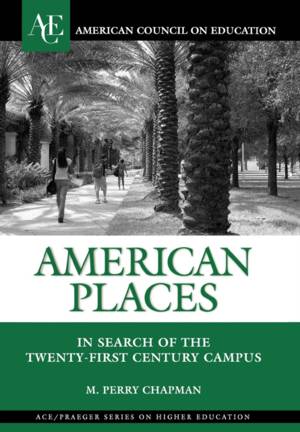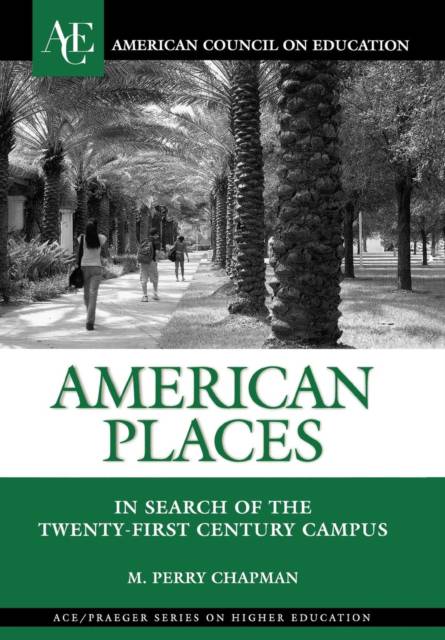
- Afhalen na 1 uur in een winkel met voorraad
- Gratis thuislevering in België vanaf € 30
- Ruim aanbod met 7 miljoen producten
- Afhalen na 1 uur in een winkel met voorraad
- Gratis thuislevering in België vanaf € 30
- Ruim aanbod met 7 miljoen producten
Zoeken
Omschrijving
For the college campus, "place" means much more than just geography and physical setting. It is the sum of the experiences, activities, events, and memories that occur within the campus. American institutions of higher education are giving renewed attention to the question of how the quality and character of place can support the endeavors of the institutions. In doing so, campus communities are seeking to reclaim ground that was lost in the decades after World War II, when the traditional virtues of campus coherence, human scale, and place distinction were overtaken by explosive growth in attendance rates and the growing prevalence of automobiles. American Places calls for campuses to be conceived, not only to heighten the quality of the learning experience, but also as working demonstrations of how places everywhere can be transformed into more healthy, humane, civic environments. As campuses and communities are reshaped by societal forces, the campus will endure as a vital civil learning environment well into the 21st century.
American Places calls for campuses to be designed, not only to heighten the quality of the learning experience, but also as working demonstrations of ways in which places everywhere can be transformed into more healthy, humane, civic environments. For the college campus, "place" should mean much more than geography and physical setting. It represents the sum of the experiences, activities, events, and memories that occur within the campus boundaries. Today, American institutions of higher education are devoting renewed attention to the question of how the quality and character of place can support their goals. In doing so, campus communities are seeking to reclaim psychological ground that was lost in the decades after World War II, when the traditional virtues of campus coherence, human scale, and place distinction were overtaken by explosive growth in attendance and the growing prevalence of automobiles.
The quest to make better places of college campuses has a critical pract
American Places calls for campuses to be designed, not only to heighten the quality of the learning experience, but also as working demonstrations of ways in which places everywhere can be transformed into more healthy, humane, civic environments. For the college campus, "place" should mean much more than geography and physical setting. It represents the sum of the experiences, activities, events, and memories that occur within the campus boundaries. Today, American institutions of higher education are devoting renewed attention to the question of how the quality and character of place can support their goals. In doing so, campus communities are seeking to reclaim psychological ground that was lost in the decades after World War II, when the traditional virtues of campus coherence, human scale, and place distinction were overtaken by explosive growth in attendance and the growing prevalence of automobiles.
The quest to make better places of college campuses has a critical pract
Specificaties
Betrokkenen
- Auteur(s):
- Uitgeverij:
Inhoud
- Aantal bladzijden:
- 260
- Taal:
- Engels
- Reeks:
Eigenschappen
- Productcode (EAN):
- 9780275985233
- Verschijningsdatum:
- 1/04/2006
- Uitvoering:
- Hardcover
- Formaat:
- Genaaid
- Afmetingen:
- 165 mm x 237 mm
- Gewicht:
- 539 g

Alleen bij Standaard Boekhandel
+ 262 punten op je klantenkaart van Standaard Boekhandel
Beoordelingen
We publiceren alleen reviews die voldoen aan de voorwaarden voor reviews. Bekijk onze voorwaarden voor reviews.








